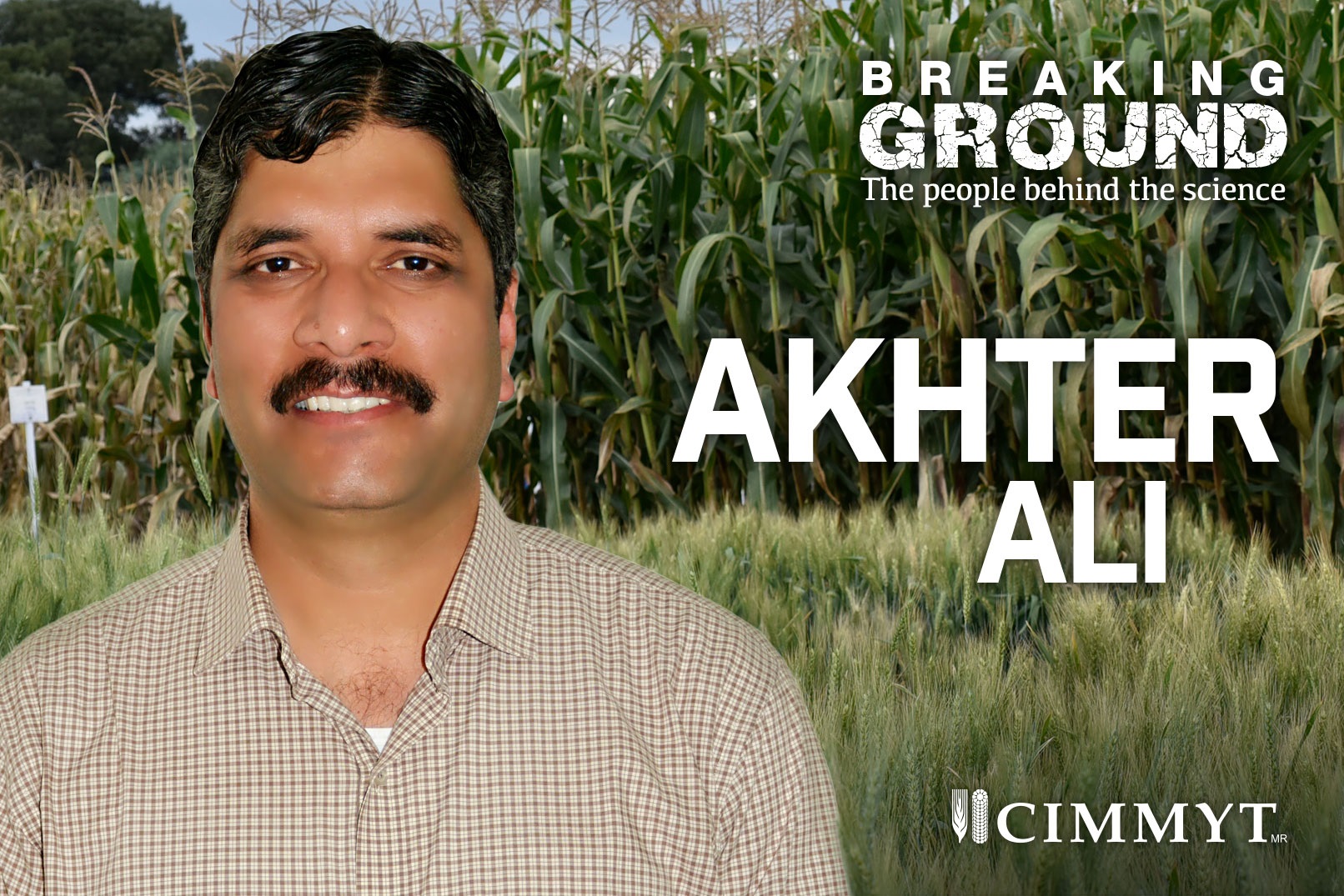 Breaking Ground is a regular series featuring staff at CIMMYT
Breaking Ground is a regular series featuring staff at CIMMYT
EL BATAN, Mexico (CIMMYT) – Akhter Ali always knew he wanted to have an impact on the livelihoods of farmers in Pakistan.
“I come from a farmer family – the poverty and inequality of rural communities always disturbed me,” said Ali, who was born in Multan district, Pakistan. “I knew from a young age I wanted to do something to help my community and the rural poor throughout my country.”
Ali, an agricultural economist at the International Maize and Wheat Improvement Center (CIMMYT), is working to sustainably increase agricultural productivity and incomes for farmers through the Agricultural Innovation Program (AIP), an initiative funded by the U.S. Agency for International Development to build up the country’s agriculture sector through the development and dissemination of new agriculture technologies.
“Agriculture supports nearly half of Pakistan’s population – more than two thirds for those living in rural areas – and accounts for over 20 percent of Pakistan’s gross domestic product” Ali said. “Strengthening this sector by connecting and addressing the needs of different actors in rural markets is key to poverty reduction and achieving food security.”
Despite the significant role of agriculture to the economy, the sector has only grown 2.8 percent in recent years due to weak market structures, resource depletion and other challenges. Ali, along with other researchers, is analyzing how maize and wheat farmers can access the best seed, technology and practices to sustainably increase crop yields across the country.
“If we want to boost farmer livelihoods, we need to change how farmers work by ensuring they know how to sustainably manage their land, water and other resources,” Ali said. “We then need to ensure that the markets in which these farmers operate are stable so that they have easier access to agricultural inputs like seed.”
Ali’s research over the past four years at CIMMYT has focused on making these goals a reality, from conducting comprehensive surveys, which are expected to help develop the durum wheat market in Pakistan, to adoption and impact studies of such sustainable technology as zero tillage machines and precision land levelers, now used by thousands of farmers throughout Pakistan.
“There are 80,000 farmers – 20 percent of which are women, whose numbers are growing – working with AIP who have adopted these new, sustainable technologies,” said Ali. In the future, Ali hopes to see his work continue to be used as a tool by policy makers, extension workers and others.
“We still face challenges with farmer access to seed, from engaging women to market constraints, so it’s critical we create policies that facilitate sustainable development in rural communities,” Ali said.
Shifting trends in Pakistan from urbanization to climate change will make it even more necessary to understand how rural communities operate in the coming years, he said, adding that policies supporting its development will be key to feeding the country and alleviating rural poverty.
 Nutrition, health and food security
Nutrition, health and food security 
